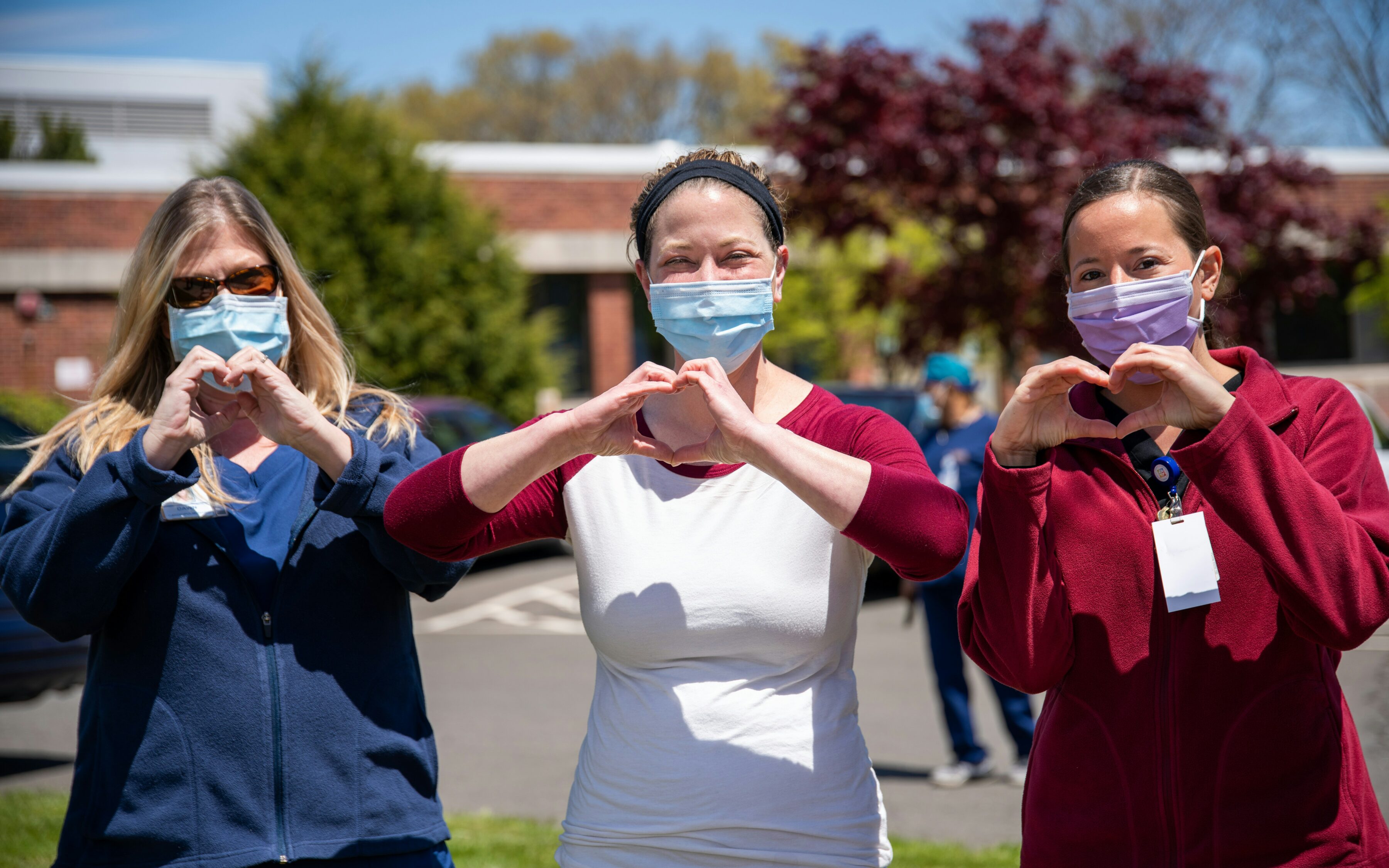Nurses help people, it’s in the DNA of the role, but it’s far from a one-size-fits-all profession. There are many types of nurses, ranging from children’s nursing to adult nursing and mental health nursing to learning disability nursing.
In this article, we’ll be delving into the different types of nurses, exploring what they do, how they differ, nursing salaries, and more. First, though, what are a nurse’s responsibilities, more generally speaking?
What Does a Nurse Do?
Nurses are medical professionals who work in various healthcare settings, from acute to community care and primary to secondary care. If healthcare practices are going on, there’s an excellent chance you’ll find a nurse nearby.
Their duties are wide-ranging and complex and include (note, this list isn’t exhaustive):
- Drawing blood samples, administering medications and drips, treating wounds, etc.
- Keeping comprehensive, up-to-date patient records (either written or digital).
- Both planning a patient’s care and then helping to deliver it.
- Carrying out medical examinations.
- Monitoring and taking observations (like temperature, weight, etc).
Each nursing type has its particularities in terms of the skills and traits that are needed. However, there are some skills that are universal, whatever type of nurse you happen to be. These include:
Communication
A nurse is often a patient’s most frequent point of contact whilst being treated, particularly in acute settings, so communicating clearly and with compassion is critical.
Compassion
Speaking of compassion, that’s another trait pivotal to being a successful nurse. Nurses see a tremendous amount of pain and discomfort each day, whether physical or mental, and they need to tap into that vein of humanity alongside their more objective medical training to supply personable, patient-centred care.
Of course, nurses must also look after themselves, too, to avoid the risk of burnout or compassion fatigue.
Organisation
Nurses need to be organised to stay on top of the high workloads they’re placed under, often in fast-paced environments like a hospital.
Resilience
Nurses must be resilient to withstand the various emotional (and physical) demands the job throws at them. From dealing with challenging behaviours in patients to seeing incurable diseases wreak havoc throughout a person’s body, you need a certain toughness to be a successful nurse.
Regarding the physical demands, nurses often work long shifts and are on their feet most of the time, so this isn’t necessarily a role for people who get fatigued quickly.
The 4 Main Types of Nurses
Broadly speaking, there are four areas a registered nurse can specialise in here in the UK: adult nurse, children’s nurse, mental health nurse and learning disability nurse. We will also touch briefly upon nursing associates towards the end of the article. Let’s first start, though, with adult nurses.
Adult Nurse
Adult nurses, also called general nurses or RGNs, are the most common nurses in the nursing workforce. As of 2022, there were over half a million adult nurses, with the next-most common being mental health nurses, of which there were fewer than 100,000.
As the name suggests, they care for adults and their physical health. Like every nursing role, it’s a gratifying profession in which you get out what you put in. The demands it places on a person are also significant, and it’s fair to say that being an adult nurse isn’t always easy.
Adult nurses supply care across the healthcare spectrum, from the acute to the chronic and from minor to major ailments. They have the broadest scope of practice of all the nurse types. Mental health nurses, learning disability nurses and children’s nurses, by comparison, focus on a more specialised pathway.
That’s not to say adult nurses can’t themselves specialise. For example, there are emergency nurses, palliative care nurses, nephrology nurses, cardiac nurses, and oncology nurses, to name just a few. It’s worth noting that these specialisms often require other postgraduate training, however.
Children’s Nurse
Also known as paediatric nurses, these professionals are primarily involved with caring for and supporting babies, children and young people. Children’s nurses have the communication skills that are a hallmark of the profession. However, they don’t just have to communicate well with parents; they must be able to communicate with children, too.
Children’s nurses work in numerous healthcare environments, including neonatal and paediatric departments within hospitals and the community.
Children’s nurses must deliver age-appropriate care and care for various developmental stages, from newborn infants to adolescents. In other words, children’s nurses must be able to wear many hats, often in the space of just one shift.
Mental Health Nurse
This type of nursing involves primarily helping patients with their mental wellbeing over their physical health.
In practice, this looks like carrying out first assessments with a patient struggling with their mental health, offering evidence-based therapies like CBT to patients – either individually or within a group setting – and helping administer treatments, to name just a few.
Registered mental health nurses (RMNs) need a range of skills more specific to their speciality, including a comprehensive knowledge of psychiatric medications, the ability to deal with highly challenging behaviours, and sensitivities towards mental health stigma.
Learning Disability Nurse
Learning disability nurses provide care to those with learning disabilities and special needs, helping to initially assess patients and develop the subsequent care plans, as well as helping with administering medications and offering behavioural support.
They also advocate for the person with the learning disability to ensure that they receive the same fairness and quality of treatment as everybody else. Moreover, they work with families and other carers to provide further support and guidance in caring for the individual.
Nursing Associate
Nursing associates are a relatively new addition to the nursing workforce. They lie between healthcare assistants (HCAs) and registered nurses (RNs) and have many of the same responsibilities as RNs.
However, registered nursing associates (RNAs) cannot carry out more advanced clinical procedures, e.g., the administration of specific IV therapies, complex wound management, or central line management.
Becoming a nursing associate takes roughly two years. Successful graduates will receive a foundation degree upon completion (or another qualification if the candidate has gone through the apprenticeship route rather than the foundation degree route).
RNAs are typically employed in Band 4, meaning they’re paid between £25,147 and £27,596 depending on experience.
Frequently Asked Questions (FAQs)
What’s the Salary for a Nurse?
Most registered nurses in the UK start at Band 5 within the Agenda for Change pay system, which means a base salary of £28,407. The highest salary for a nurse in Band 5 is £32,934.
How Do You Become a Nurse in the UK?
The most common way someone becomes a nurse in the UK is through studying for an undergraduate degree. Studying for a BSc (Hons) in Nursing will give you the qualifications you need to go on and register with the Nursing and Midwifery Council (NMC), which allows you to start practising. Note: the NMC must approve the course you study to become registered with them.
Can You Become a Nurse Without a Degree?
A nursing degree isn’t the only pathway to becoming a registered nurse. Individuals can also enrol in a nursing degree apprenticeship. These typically take four years to complete and combine academic study with on-the-job learning.
Final Thoughts on Different Types of Nurses in the UK
The nursing world is as varied as it is rewarding, and whichever nursing avenue you go down, you can be guaranteed that it will be an enriching and fulfilling experience. Get in touch if you want to find out whether we have any nursing roles on offer!





